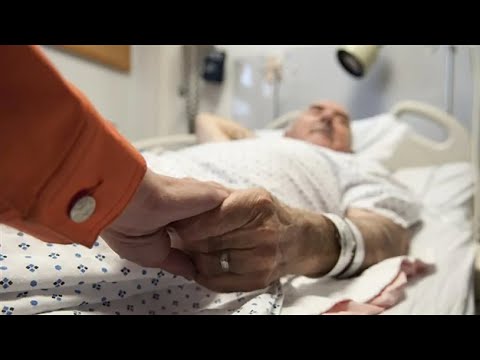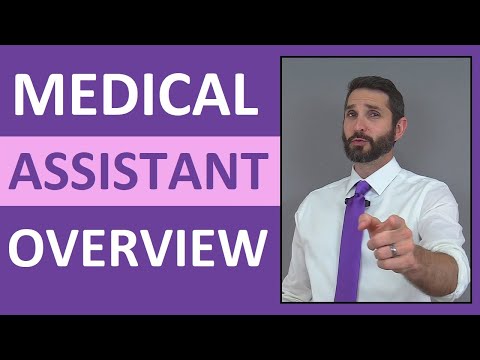Medically Assisted Dying in Ontario
Contents
- Introduction
- What is medically assisted dying?
- Who is eligible for medically assisted dying in Ontario?
- The process for accessing medically assisted dying in Ontario
- What are the risks and potential complications of medically assisted dying?
- What are the ethical and religious considerations around medically assisted dying?
- The public reaction to medically assisted dying in Ontario
- The impact of medically assisted dying on the healthcare system in Ontario
- The future of medically assisted dying in Ontario
- Conclusion
In Ontario, medically assisted dying is legal. If you are considering this option, there are some important things to know. This blog will provide you with information on what medically assisted dying is, who is eligible, and what the process involves.
Checkout this video:
Introduction
In June 2016, the Government of Ontario passed legislation authorize medically assisted dying in certain circumstances. The new law, which came into effect on June 17, 2016, allows for medically assisted dying to be provided by a physician or nurse practitioner to a competent adult patient with a grievous and irremediable medical condition that causes enduring suffering that is intolerable to the individual in the circumstances of his or her state.
Medically assisted dying is a deeply personal and complex decision. It is one that should only be made after careful consideration and with the input of trusted loved ones and health care professionals. The legislation provides that a person must give explicit request for medical assistance in dying. This request must be made in writing and signed by two independent witnesses.
If you are considering medically assisted dying, it is important to discuss your options with your health care provider and loved ones. Below is some additional information about medically assisted dying in Ontario that may be helpful as you make your decision.
What is medically assisted dying?
Medically assisted dying is when a physician or nurse practitioner helps a patient die at their request. In order to be eligible for medically assisted dying, patients must:
-be at least 18 years old
-be eligible for health care in Ontario
-have a grievous and irremediable medical condition
-be suffering intolerably from their condition
-make their request voluntarily, without coercion from anyone else
Medically assisted dying is different from euthanasia, which is when someone hastens another person’s death without their request.
Who is eligible for medically assisted dying in Ontario?
To be eligible for Medical Assistance in dying, a person must meet all of the following criteria, as set out in the federal legislation:
-Be at least 18 years old and competent to make decisions about their own health care
-Have a grievous and irremediable medical condition
-Make a voluntary request for Medical Assistance in dying
-Give informed consent to receive medical assistance in dying
In order to be considered competent to make decisions about their own health care, a person must be able to understand the information that has been provided to them and the consequences of making a decision about medical assistance in dying. A person is not considered competent if they are unable to make decisions because of mental illness, developmental disability, or other conditions that affect their ability to understand information or make decisions.
A grievous and irremediable medical condition is one that causes intolerable suffering that cannot be relieved under conditions that a person considers acceptable. The condition must also be incurable, meaning that it cannot be cured or improved enough to allow the person to live a natural life with dignity.
A request for medical assistance in dying must be made voluntarily and not under coercion from another person. A person who has previously been diagnosed with a mental illness may still be eligible for medical assistance in dying if they are found by two independent assessors (a doctor and either a nurse practitioner or psychiatrist) to be competent at the time they make their request.
All requests for medical assistance in dying must be made in writing, signed by the person requesting it, and witnessed by two people who are not financially dependent on the person making the request.
Requests can be revoked at any time prior to receiving medical assistance in dying.
After receiving information about all of their treatment options and other end-of-life supports, including palliative care, a person must give informed consent before receiving any form of medical assistance in dying.
The process for accessing medically assisted dying in Ontario
In order to access medically assisted dying in Ontario, you must first consult with a physician or nurse practitioner.
You must be a resident of Ontario and be 18 years of age or older. You must also have a grievous and irremediable medical condition (e.g., an incurable illness, disease or disability) that causes intolerable suffering and cannot be alleviated by any means acceptable to you.
A physician or nurse practitioner will assess whether you meet the eligibility criteria for medically assisted death. If they determine that you are eligible, they will provide you with information about the process and refer you to another physician or nurse practitioner for a second opinion.
Once you have received a second opinion, if both physicians or nurse practitioners agree that you meet the criteria for medically assisted death, they will provide you with information about how to proceed.
At this point, you must make a written request for medical assistance in dying to one of the physicians or nurse practitioners involved in your care. You must also sign a consent form indicating that you wish to proceed with the medical assistance in dying procedure.
If approved, the procedure will be carried out by a physician or nurse practitioner, who will administer the medication required to end your life.
What are the risks and potential complications of medically assisted dying?
There are always risks and potential complications associated with any medical procedure, including medically assisted dying. Some of the risks and potential complications that have been identified include:
-Reactions to the medication: Some people may experience adverse reactions to the medication used for medically assisted dying. These reactions can range from mild (e.g., nausea, vomiting) to severe (e.g., anaphylactic shock).
-Unintended death: In rare cases, people may die before they intended to because of complications with the medication or procedure.
-Prolonged suffering: In some cases, people may experience prolonged suffering despite taking the medication or undergoing the procedure. This is more likely to occur if the person is not properly assessed or if their condition is not accurately diagnosed.
-Psychological distress: Some people may experience psychological distress after taking the medication or undergoing the procedure. This distress can range from mild anxiety to more severe mental health conditions, such as post-traumatic stress disorder (PTSD).
What are the ethical and religious considerations around medically assisted dying?
The ethical and religious considerations around medically assisted dying are complex and sensitive. In Ontario, the Law Society of Upper Canada has released a set of guidelines to assist lawyers and law students who may be asked to provide legal assistance in relation to medical assistance in dying.
The guidelines set out the legal framework within which medical assistance in dying can take place in Ontario, and provide guidance on the ethical considerations that lawyers should take into account when advising clients on this issue.
The guidelines make it clear that there is no one-size-fits-all approach to providing legal assistance on medically assisted dying, and that lawyers need to consider the specific circumstances of each case.
The public reaction to medically assisted dying in Ontario
On May 10, 2016, the Canadian province of Ontario became the first in the country to allow for medically assisted dying when it passed Bill 84, also known as the “End of Life Choice Act.” The Act allows for people with a “grievous and irremediable medical condition” to request assistance from a physician in ending their life.
The public reaction to this news was mixed, with some people lauding the decision as a step forward for empathy and medical care, and others decrying it as a slippery slope that could lead to abuse and involuntary euthanasia. However, regardless of where people stand on the issue, it is undeniable that the conversation around medically assisted dying is one that is moving quickly, both in Canada and around the world.
The impact of medically assisted dying on the healthcare system in Ontario
Medically assisted dying (MAD) is legal in Canada, and while it is not currently available in every province and territory, it is expected to become more widely available in the coming years. In Ontario, MAD became legal in 2016, and since then, there has been a significant impact on the healthcare system.
The number of MAD cases in Ontario has been increasing each year, with nearly 500 cases reported in 2019. This increase has put a strain on the provinces healthcare resources, as each MAD case requires a significant amount of time and effort from medical professionals. This strain is likely to continue to grow as MAD becomes more widely available across the province.
In addition to the increased demand on resources, MAD also raises ethical concerns for many healthcare professionals. These concerns can lead to feelings of moral distress, which can impact both the physical and mental health of those professionals. As such, it is important that these concerns are addressed by both individual healthcare organizations and the provincial government.
The impact of medically assisted dying on the healthcare system in Ontario is significant and far-reaching. It is important that this issue is addressed by both policymakers and healthcare organizations in order to ensure that the best interests of both patients and medical professionals are taken into account.
The future of medically assisted dying in Ontario
In 2016, the Supreme Court of Canada ruled that Canadians have the right to end their lives with medical assistance. The Court also said that the current laws surrounding medically assisted dying are unconstitutional, and gave the federal and provincial governments one year to create new legislation.
In Ontario, the government has proposed a comprehensive set of regulations that would allow people to access medically assisted dying in a number of different ways. These include:
– allowing people to self-administer lethal doses of medication;
– permitting advance directives, so that people can request medically assisted death before they become incompetent to make decisions about their own health;
– allowing people who are not suffering from a terminal illness to access medically assisted death; and
– providing supports for family members and caregivers.
The proposed regulations would also create a number of safeguards to protect vulnerable people, such as:
– requiring that two independent doctors or nurse practitioners certify that a person is eligible for medically assisted death;
– mandating that people seeking medical assistance must be informed of all available treatment options, including palliative care; and
– requiring a 15-day waiting period between the time a person requests medical assistance and the time it is actually provided.
The Ontario government is currently consulting with the public on these proposed regulations, and is expected to introduce legislation later this year.
Conclusion
Overall, the Medical Assistance in Dying regime in Ontario is working well. However, there are some areas where improvements could be made, such as increasing transparency and communication around the process, and providing more support for patients and their families.







